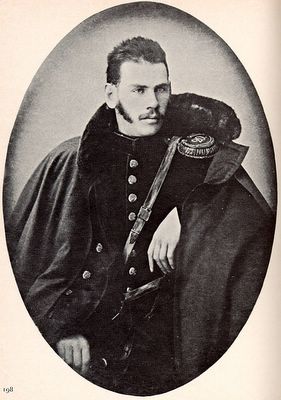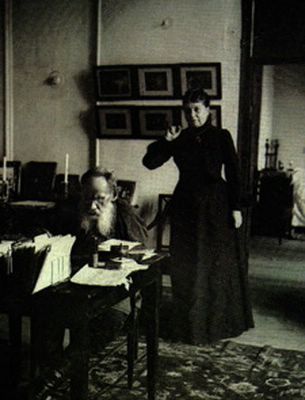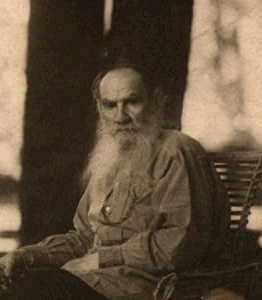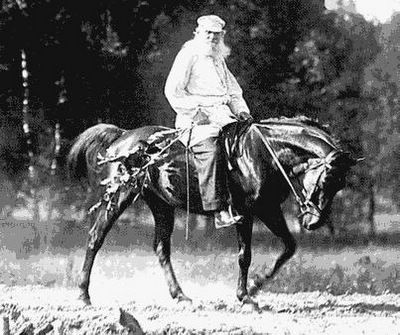Tolstoi era un hombre profundamente religioso. En su época, tachado de subversivo, su vida fue intensa y polifacética. Agricultor latifundista, militar, poeta, conde, mistico. Tolstoi era un hombre rico, febrilmente atormentado, que abandonó sus pertenencias y, finalmente, incluso a su terrible esposa e hijos. Es una batalla perdida la de vivir según los mandamientos, según un decalogo impreso dentro de uno. La única solución se encuentra en el abandono. Si para Tolstoi existia una revolución esa era, de todo punto, intima, individual. El arte era su mayor transgresion. La cesión de sus terrenos y propiedades resultaba algo nimio para él. Sus jornadas de trabajo con los agricultores depuraban su conciencia. Un ser tan elefantiásico, un faraón ruso, solo vinculaba su redención a sus textos y al sacrificio físico. Algunos apelaban a un anarquismo cristiano. Influyó en Gandhi y la vida comunitaria de Israel. Era un estricto hombre de orden; jamas politizó su discurso. La verdad es que solo personajes de tamaña estatura pueden permitirse jugar a esos juegos. Jamas un colectivo.

He stated that art is a conveyor of feelings, good and bad, from the artist to others. Through feeling, the artist 'infects' another with the desire to act well or badly. "Art is a human activity having for its purpose the transmission to others of the highest and best feelings to which men have risen." Tolstoy used ordinary events and characters to examine war, religion, feminism, and other topics. He was convinced that philosophical principles could only be understood in their concrete expression in history. All of his work is characterized by uncomplicated style, careful construction, and deep insight into human nature. His chapters are short, and he paid much attention to the details of everyday life. Tolstoy also refused to recognize the conventional climaxes of narrative - War and Peace begins in the middle of a conversation and ends in the first epilogue in the middle of a sentence.
Tolstoy's form of Christianity was based on the Sermon on the Mount and crystallized in five leading ideas: human beings must suppress their anger, whether warranted or not; no sex outside marriage; no oaths of any sort; renunciation of all resistance to evil; love of enemies. "The main feature, or rather the main note which resounds through every page of Tolstoi, even the seemingly unimportant ones, is love, compassion for Man in general (and not only for the humiliated and the offended), pity of some sort for his weakness, his insignificance, for the shortness of his life, the vanity of his desires... Yes, Tolstoi is for me the dearest, the deepest, the greatest of all artists. But this concerns the Tolstoi of yesterday, who has nothing in common with the exasperating moralist and theorizer of today." (the composer Peter Tchaikovsky in Vladimir Volkoff's biography Tchaikovsky: A Self-portrait, 1975)



No hay comentarios:
Publicar un comentario